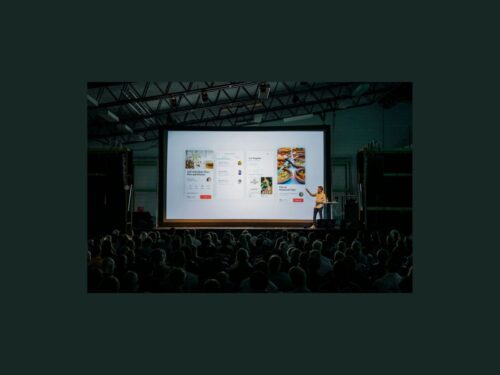City aims to become world leader in social innovation alongside its academic, life sciences and tech prowess A new...
How do I find my First Paying Customer in Year 1?
In the first instance, most start-ups concentrate on their product design or service and leave the thorny task of finding customers further down the line, almost as an afterthought. But keeping a keen eye on your market from the outset can put you well ahead of the game.
Remember, everyone you come across on your journey is a potential customer, as is everyone in your personal network, and these will be the people you approach for their help in testing your concept and validating your product design. Using rapid prototyping and launching quickly, provides you with customer feedback that will hone your product more quickly and efficiently than you could ever achieve with costly, time consuming iterations.
My golden rule is to get customer validation as early in the product life cycle as possible, using customer feedback to achieve faster error correction and adapt to your market. People will also pay for a product that has other customers’ endorsement, this can be everything from likes and comments on your website to large enterprise endorsement for your corporate offering. Obtaining a paid pilot, with a friends & family customer, within six to nine months of starting your business is an ideal way to validate that customers are willing to pay for something you are building.
Working with Kevin Laracey at eDocs, a Boston-based start-up we launched back in the late ‘90s, we pioneered an electronic bill presentment solution for consumers. Until then all credit card statements were printed by bespoke fast printers, such as Xerox, churning out 2000 pages per minute. We reverse engineered the raw print file and extracted the statement data. Our model was to take this harvested data, create the credit card statements and email them to customers. Early prototypes and customer feedback demonstrated we could not ensure adequate data security via email delivery. So, we pivoted, developing a web portal where customers could login securely and view their statements online. We developed a model that is still being used by several financial institutions today, on the back of early customer validation. Kevin suggests, “The key to early customer validation is to listen to your prospects and adapt your solution if you see a trend of multiple prospects making the same sensible request. But also keep in mind that sometimes customers don’t know what they want, and sometimes their requests can send you down the wrong path. Liberally apply your judgment to discern what feedback from prospects has merit.”
With the second prototype, we demonstrated the product to American Express in Year 1 by simulating their statement data with their own brands. The stakeholders fell in love with the innovative concept and AMEX became a pilot customer. As we all know, winning an enterprise customer early in the start-up journey can make a big, in fact a huge difference to its success.
The rest is history, as they say, with AMEX, Toyota Cards, Telstra and BT on board as clients, we raised US$20M in venture capital and completely rebuilt and scaled the platform. eDocs was acquired by Siebel for US$115M in 2004 and remains part of the Oracle Financial Suite, and the lessons learnt have guided my path with subsequent projects.
So, the key to finding your first paying customer is early customer validation. Customers typically buy on the basis of recommendation. The ability to engage customers from the beginning, listen to their early feedback and win their approval and buy-in, results in a growing network of referrals and early adopters.
Dr Ashok Suppiah
Founder & CEO Mitra Group
Cambridge entrepreneurs address city’s inequality with pioneering £multimillion ‘pay-it- forward’ initiative
AT&T Launches Its First Converged Feature for Consumers with Internet Backup – Using AT&T Wireless to Keep Fiber Customers Online at No Extra Cost
This new solution combines the power of AT&T Fiber and wireless, so customers can stay connected in the event of a...
One deck is not enough!
We’ve all been there. Sat through a presentation that makes the eyes bleed. The walls of 10pt text… The barrage of...




